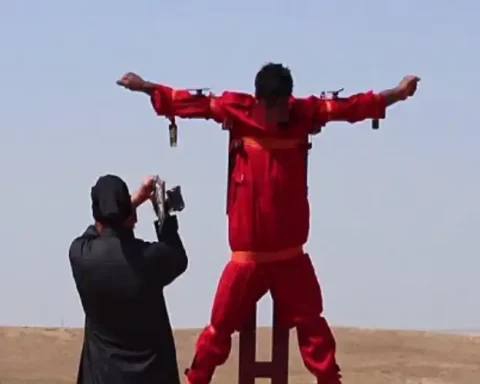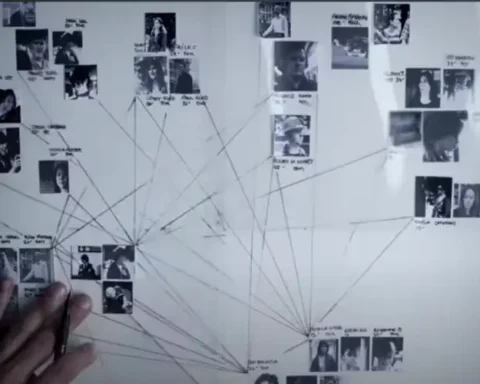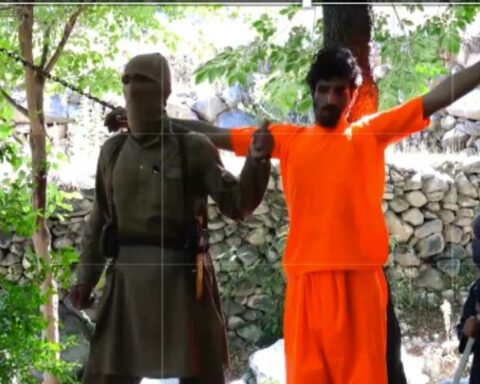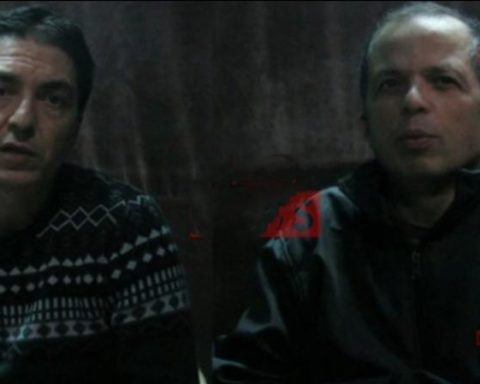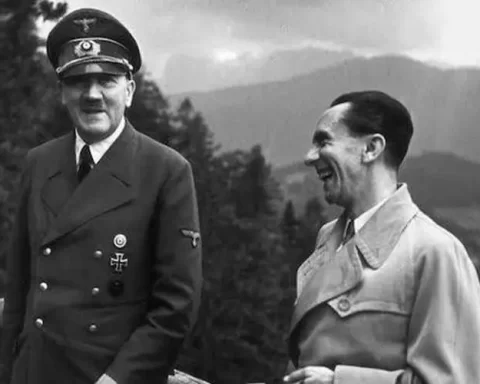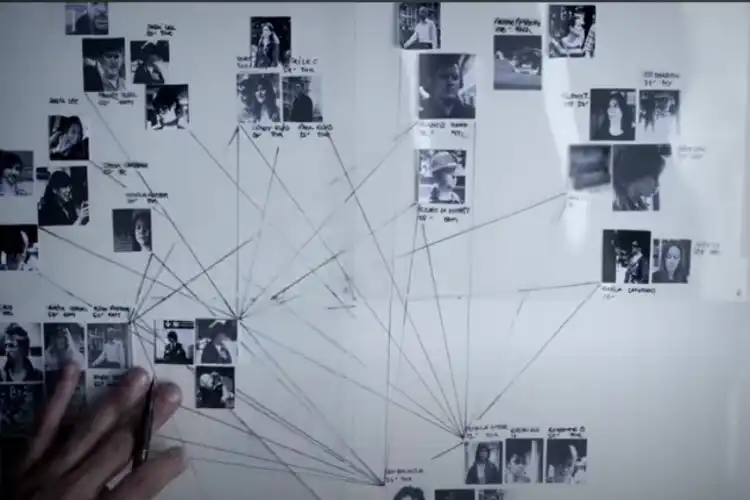We get asked all the time:
- How Do You Get Into Intelligence?
- Is It Hard To Get A Security Clearance?
- Do You Need To Be Intelligent To Work In Intelligence?
What is an Intelligence Officer & What Do They Do?

In case you’re not familiar with the role, Intelligence Officers are employed to collect, compile, analyse and assess information for the creation of Intelligence.
Whether it’s recruiting human sources or managing investigations into national security, Intelligence Officers collect information and produce intelligence to help inform decision makers. Simple right?
You might think of Intelligence Officers as the spies you see in popular films and books. However, today, Intelligence Officers perform a whole bunch different of functions for Intelligence Agencies.
What’s the Difference Between Intelligence Officers and Intelligence Analyst?
Intelligence Officers typically ‘collect’ raw information while Analysts process it (the raw information) to determine its Intelligence value.
Some Intelligence Agencies will refer to their Intelligence Officers interchangeably as Intelligence Analysts. However, in recent years Intelligence Agencies have begun to make the distinction between Intelligence Officers and Analysts.
All Intelligence Officers are in a sense Intelligence Analysts. However, their ‘role’ may be in the collection of information, rather than the processing of it.
Where Can / Do Intelligence Officers Work?
Intelligence Officers predominantly work for Intelligence Agencies, Law Enforcement, Military, and Government Organisations. Private Companies also recruit Intelligence Officers to perform Intelligence Functions.
Depending on the role of the organisation Intelligence officer’s will have different operational priorities and collection requirements. For example – Intelligence Officers working for the Department of Homeland Security will have different priorities as those working in the Office of Naval Intelligence (for example).
Each country has their own Intelligence Agencies. Each organised differently, with different roles, tasks and their unique collection methods. Intelligence Officers will be recruited to work within these organisations to answer their unique Information Requirements.
In recent years more and more Government Departments and Organisations are beginning to realise the value of an effective intelligence capability. As such, there’s been a significant increase in the demand for Intelligence Officers in non-traditional agencies such as Corrections, Tax Enforcement, Medical Intelligence and the Private Sector.
Almost all Intelligence Officers can expect to travel at some point in their career. Intelligence Case Officers can also expect to work overseas in a variety of different locations.
Conveniently Wikipedia has compiled a list of Intelligence Agencies by country for your viewing pleasure, and so I don’t have to. Click here for the Wikipedia link.
How Can I Specialise In HUMINT / SIGINT / or Surveillance?
Intelligence Officers can be recruited directly into a job/role or assigned to where they’re needed. Obviously, the easiest way to specialise is to applying directly for a HUMINT role.
However, lots of Intelligence Agencies will hire a pool of Intelligence Officers and assign personnel to a role depending on the agencies needs or the ability of their applicants.
You can typically specialise in either HUMINT, SIGINT, Surveillance (or whatever) by nominating this as a preference. Usually, you will get an opportunity to choose your preferences during your recruitment training, or throughout your career during your professional performance appraisal.
Be conscious that Intelligence Agencies assign staff where they need them most. If you want to do a particular role, my advice is to get a foot in the door (doing anything), it’s a lot easier to move when you’re already inside an Intelligence Agency. Trust me.
Does Military Experience Help My Application To Become An Intelligence Officer?
Yes. Yes, it does.
We don’t care what people say. Having Military experience will help your application to become an Intelligence Officer.
We have met people who’ve said having military experience doesn’t matter, and others who even believe it could adversely affect your application. But, c’mon seriously? Military experience shows discipline, training, sense of mission, adherence to command, rank structure and dedication to duty. These are great attributes of any potential Intelligence Officer.
What About Military Intelligence – Do They Have Intelligence Officers?
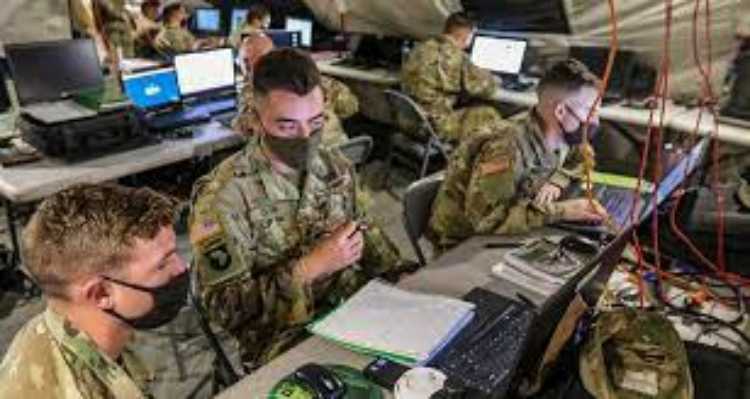
Yep, sure do. Military Intelligence also recruits Intelligence Officers.
Military Intelligence Officers do a similar role to Intelligence Officers in other Intelligence Agencies – but for the Military (obviously).
Allow us to explain a little clearer. Military Intelligence Officers are trained and employed to provide Intelligence to their commanders on two distinct factors, Terrain and Enemy.
Military Intelligence Officers are subject matter experts in the ‘red force’, and expected to have an intimate understanding of the enemy including their tactics, weapons and activities.
Overall the training and the job of a Military Intelligence Officer is similar to Intelligence Officers in other Intelligence Agencies (in fact there’s sometimes significant overlap). The difference is that Military Intelligence Officers are also trained officers in their chosen service (Army, Navy, Airforce, etc), and employed to provide intelligence advice for Military operations.
Can I Become a Military Intelligence Officer & Transfer To Another Intelligence Agency?
Yes! …and No.
Let us explain.
Military Intelligence Officers are trained to perform the function of their duties within the military context (see previous). It’s common for Military Intelligence Officers to apply for a role in a National Intelligence Agency at the completion of their service.
An Intelligence Officers’ experience and training are indeed considered in their application, and it will help them when they apply.
However, (most) Military Intelligence Officers are still required to apply through the same channels and complete the same recruitment process.
So, yes, Military Intelligence experience will help your application. But it’s not a sure thing.
Can I Get Recognition of Prior Learning For My Military Intelligence Experience?
Sometimes.
Despite already having a foundation of intelligence knowledge – Military Intelligence Officers will still usually be required to undertake the same training as new recruits.
But this isn’t so bad. You’re guaranteed to learn something new.
How Much Does An Intelligence Officer Get Paid?
Intelligence Officers are typically paid between $70,000 – $90,000 per year during their first 1-2 years. This usually includes a period of training and probation.
At the completion of training, (or on their first assignment), a typical Intelligence Officer will be paid around $100,000 per year. As you gain experience and time in service, your pay will increase.
What Tools, Gadgets and Technologies Do Intelligence Officers Get Use?
Ok, We are yet to be issued an exploding Omega… but there are some exciting tools and pieces of equipment you do get to use.
While We are not going to tell you the specifics (as it would spoil the surprise), just know the tools and technology are usually designed to make the job of the Intelligence Officer easier (in one way or another).
So whether it’s communication, collection, analysis or bandwidth, there’s a suite of interesting tools and technologies you will use.
Will I Use Different Weapons and Learn How to Shoot Them?
Yes. Intelligence Officers are taught weapon handling and marksmanship principals on a suite of different weapons.
Intelligence Officers typically carry weapons for the purpose of ‘self-defense’, and will usually be issued a sidearm if they’re operating in a particularly dangerous location or mission.

Ok – So How Do I Become An Intelligence Officer?
Before You Apply:
The Wait Is Real!
Before you even apply for a career in Intelligence, expect for a lengthy wait during the application process. Typical applications can take anywhere between 6 -12 months with various stages throughout.
We say this so you don’t turn down other jobs and opportunities as you go. It’s smart to have a job when you apply and to remain working until you receive an official letter of offer. Don’t quit and expect to start the following week (or month).
Intelligence Officer Education Requirements
As you probably already know, most Intelligence Agencies expect applicants to be educated. Most (if not all) Intelligence Agencies require potential candidates to have completed an undergraduate degree from a recognised college or university before they can even apply.
Why? Well, there’s a few reasons…
- This requirement sets a filter which ensures applicants meet a certain education standard.
- Second, it shows a level of commitment by the applicant. Since the typical Undergraduate degree takes between 3-4 years to complete, it shows applicants have enough tenacity to complete their studies.
- Third, a Degree shows your ability to problem-solve. Whether it’s assignments, exams or coursework, a Degree requires research, analysis and problem-solving skills.
What Degree Should I Do To Become An Intelligence Officer?
Yep… We get this question ALL THE TIME!

But here’s the answer…
There’s no set requirement for the degree you need to become an Intelligence Officer.
Intelligence Agencies are always looking for talented people from diverse backgrounds and with varied education.
We have known Intelligence Officers who were previously Accountants, Geologists and even a Dentist.
But We know all those hungry high-school (pre-college) students won’t be satisfied with this answer. So, allow us to offer the following advice. We do think there are some degree’s that are more beneficial for becoming an Intelligence Officer, than others.
The following disciplines provide students with a firm foundation of research, writing, and analysis – attributes useful for potential Intelligence Officers:
- Politics,
- International Relations,
- Journalism,
- Law, and
- Criminology.
What Other Qualifications Will Help Me Become An Intelligence Officer?
Most intelligence agencies will have their specific list of entry requirements or minimum standards for applicants on their website.
Since you’re reading this, however, We can assume you want to know if there’s ‘bonus’ qualifications which might help you to become an Intelligence Officer.
Here are some ‘extra-credit’ criteria which might put you ahead of the competition, or at least fill out your resume:
- First-Aid Certificate,
- Military Training / Experience
- Life-Saving, Coaching, or Sports Qualifications,
- Volunteer Awards,
- Participation in International Exchange Programs,
- Knowledge of Foreign Languages, and/or
- Physical Fitness.
What Books Should I Read to Help With Intelligence Officer Skills?
Read How to Win Friends and Influence People by Dale Carnegie. This seminal book is perfect for developing your emotional intelligence, gaining skills in communication and networking.
Are there any courses I can do?
Yes, honestly, the best thing you can do to develop a foundation for Intelligence is to Learn the Intelligence Cycle.
What Hobbies Do Intelligence Officers Have?
We can’t tell you what to be interested in. Everyone is different, but it does help if your hobbies align with your job.

We recommend you a habit of reading the news (daily). Try to source your news / current affairs information from multiple sites, and try to develop your understanding of the issues from different angles and perspectives.
“Your ability to adequately understand issues or problems will increase your aptitude, and help with your Intelligence application.”
Here’s a few easy ones for you. There’s no secret Terrorism, Global Security and Foreign Politics are the core business of Intelligence Agencies nowadays. Developing your understanding of these issues/groups will improve your understanding and develop your analytical ability.
Should I Learn Another Language Before I Apply? Do I Have To Know Another Language?
All Intelligence Agencies will see anyone who can speak another language as more competitive.
While it’s not essential and won’t stop you from getting a job in an Intelligence Agency –languages are certainly desirable attributes for Intelligence Officers. But if you can’t speak another language don’t worry, there’s always time.
Resume
We are not going to tell you how to write a resume. But don’t do it on your own.
Remember this; your resume is never as good as you think it is!
While you shouldn’t tell anyone about your application, don’t submit a resume that hasn’t been checked by a few pairs of qualified eyes.
If you need to mask your intent, tell people you’re applying for ‘security specialist’, ‘research analyst’ or ‘investigator’ type positions to make the resume seem relevant.
We recommend taking the time (or paying a professional) to design a resume that highlights your skills and strengths unique to an intelligence job. Here are some of the ‘core skills and competencies’ you will want to address in your resume / CV:
- High degree of problem-solving skills and organisational ability,
- Ability to analyse, evaluate and interpret information and intelligence,
- A high level of self-motivation and innovation,
- Ability to organise and plan your work time and be able to prioritise demands,
- Ability to work on own initiative and conduct relevant research and enquiries,
- Sound understanding of policy and procedures relating to intelligence.
A simple Google search will provide you with resources on how to demonstrate these characteristics in your application.
Tip: Try to identify examples when you’ve demonstrated the core skills and competencies (listed above) and use these instances in the written and interview parts of your application.
Other Application Requirements Such As Citizenship
All Intelligence Agencies will have their unique set of application requirements and standards including age restrictions, criminal history, character tests and nationality requirements.
Most (if not all) Intelligence Agencies will require you to be a naturalised citizen of your country to apply to work in an intelligence agency. This should be no surprise to anyone.
Ok, so you’ve got your resume sorted, you’ve completed your education requirements, and you qualify to apply based on the recruitment needs…. Next step is the application.
How Do You Apply For An Intelligence Job?
In the past, Intelligence Agencies would have ‘recruiters’ who would scour the halls of prominent colleges and universities looking for bright students who will be the next cadre of spies.
Today, however, applying for an Intelligence Job is usually all done online.
Before you start, though, ensure you have all the documentation required for your application as some online applications won’t let you save your progress, or could time-out.
Also, you may be required to submit a passport photo and your resume in a suitable format for upload.
Personal and Biographical Information
The online application consists of your personal details, such as your name, age, family details, marital status, nationality and personal specifics.
Expect also to provide information about your education, living arrangements (i.e. past and present addresses), marital status and work experience.
You will be required to account for your overseas travel including time spent abroad, in what country, your address abroad and the reason for your trip.
Question & Answer Responses
Once the bio/personal aspects of the application are complete there may be a requirement to complete a question and answer segment of the online application.
These questions are designed to test your response to ‘job specific’ issues and act as an immediate filter for applicants.
Take your time drafting your answers these questions. If possible draft your answer in a word document before submitting it. Check for spelling, grammar and syntax before submitting.
We recommend sticking to 10% of the word count and using all space available for your response.
Here are some example/practice questions you might expect to find in an online application:
- Please describe yourself.
- List one time you had a disagreement with a team member or work colleague. How did you resolve it?
- Talk about a moment you faced adversity, and how you overcame it.
Psychometric Testing
For many people, psychometric tests won’t be anything new.
If you’ve ever applied for a Government / Defense / Security or similar job before, chances are you’ve probably completed a psychometric test.
Psychometric tests determine if the applicant is the right type of person for the job.
Based on a question and response format Psychometric tests assess if the applicant has the required cognitive, analytical, numeracy and literacy skills required.
These tests include pattern recognition, mathematics, physics (such as engineering) and are usually timed.
Tip: Before you start, check how many questions there are in total and divide that number by the time allocated. Ensure you don’t spend any more time on one question as it will affect your ability to complete the rest. Usually, any questions unanswered are marked as incorrect!
Results are then analysed, and a determination is made about whether you will proceed to the next round of recruitment. Usually, you will be informed at a later date if you have passed this portion. Until you hear something, assume no news is good news.
Psychological Testing
There may be a requirement to complete a psychological questionnaire also. This provides recruiters with an understanding of the type of person you are, and your natural responses to different situations and stimuli. Sometimes these questionnaires can take a few hours and ask simple questions such as, ‘I feel healthy’ or ‘I like when I’m rewarded for good work’ which provide a baseline for an applicants’ interpersonal, coping skills, knowledge, and emotional regulation.
There’s no real trick to these tests. Usually, they just require you to answer based on your knowledge, experience, and feelings. Our recommendation is to ensure you feel fit and healthy as a lot of the questions refer to your mood, attitude, coping and emotions.
Interview Stage
If you’re invited to attend an interview, you’ve probably proceeded through the initial screening phases and met the required criteria.
The Interview stage (or stages) consists of either one-on-one interviews with Agency employees or a panel (of three or more), who ask direct questions about you and your application.
Agency recruiters will ask about your education, your experiences, family circumstances, motivation, all the while assessing your character to determine if you have the requisite aptitude and personal skills for the job.
Agency recruiters will usually have access to your application, and any assessments you’ve completed (such as the psychometric tests). So they will know what you’ve stated in your application but are likely to want you to provide more context.
Panel interviews may also include Agency Psychologists who ask questions while assessing your emotional regulation, psychological state, etc.
At the conclusion of the interviews either the assessor or psych may recommend you for further assessment, or terminate your application.
You’re unlikely to find out these results on the day – and can only assume you passed if you’re invited to the next stage of recruitment.
Security Clearance
As you’re aware, the role of Intelligence Officers is to collect secret and sensitive information about an adversary. As such, Intelligence Officers have to be properly vetted to determine if they can hold a security clearance.
Expect the security clearance phase to be invasive. It was for me.
Applying for a security clearance requires the applicant to submit their security pack – which often involves a great deal of personal information, as well as sit through an interview and sometimes a polygraph (lie detector) test.
Be prepared to provide everything about your past relationships, your work history, medical and physical condition, your financial situation, family history, criminal record, friends, clubs and memberships, drug use, and your hobbies.
The security clearance is one of the lengthiest processes. While the security interview could take hours on the day – you will be required to completed extensive paperwork with supporting documentation beforehand.
Tip – Start compiling a list of your overseas travel. Include/track your travel dates, duration and specific locations, including the addresses you stayed while abroad.
Secondly, when it comes to the security interview, just be honest. Nothing will ruin your chances of being an Intelligence Officer quicker than if you’re discovered to have told a lie or not disclose information during your application.
Just in case you’re wondering:
- Should you tell your security assessor about your affair? Yes.
- Should you tell your security assessor about your past drug use? Yes.
- Should you tell your security assessor that you’re a closet homosexual and you enjoy parties with other gay men? Yes.
Your security officer is not about to call your wife or boss if you admit to some indiscretion.
The whole point of this process is to identify if you have anything that could be used against you or leveraged that could pose a security threat to the agency.
They want to know that you weren’t recruited to another Intelligence Agency, your loyalty is to your country, and that foreign intelligence agencies cannot use personal information against you to recruit you as a source.
Here’s an example of the information that will be required in your security assessment:
- Personal and Family History
- Travel History (timeline)
- Criminal History
- History and Past Use of Drugs and other Illicit Substances
- Gambling
- Affairs, Sexual Orientation & Fetishes (it’s okay if you like feet…just make sure you disclose it).
- Friends and Close Associates
- Groups and Memberships
- Contacts with foreign nationals (attempted recruitment)
- National identity and loyalty to your country
- Political alignment and feelings about certain political issues
Polygraph / Lie Detector

Some agencies prefer the use of the polygraph tests.
Don’t try any fancy shit to ‘beat the polygraph’, just be yourself, breathe and answer the questions. If you’ve got nothing to hide, then you’ve got nothing to worry about.
If you do have something to hide, perhaps a job in an Intelligence Agency isn’t the right job for you.
Fitness Assessments
Some Intelligence Agencies may require you complete a physical assessment.
Some Intelligence Agencies will expect you to be fit and healthy and at least maintain a minimum standard physical fitness.
No big secret here, if you can’t run or you consider yourself ‘unfit’ you might want to start a routine.
Frequently Asked Questions (FAQ)
FAQ #1: What’s the best Intelligence Agency to work for?
IT all depends on the type of work you want to do.
Many people think Intelligence is all ‘cloak and dagger’, but there’s a whole array of different roles and interesting areas to work.
Intelligence Agencies are usually ‘task assigned’, meaning they’re responsible for a particular type of intelligence, or a specific role. For example, the NSA is the premier SIGINT Agency for the United States Intelligence Community. However, if you’re interested in working in the area of Intelligence Targeting, the Air Force may be more appropriate.
In summary, the answer ‘depends on what you want to do’. When you know that, then find the best agency that suites. Simple.
FAQ #2: Is it better to be in HUMINT than SIGINT?
Not at all. They’re just different.
A lot of people see HUMINT as the ‘sexy’ side to intelligence…but there’s no such thing as a better intelligence – it’s all relevant!
FAQ #3: Can I apply for multiple agencies at once?
Yes. Applications for Intelligence Agencies are all typically managed internally (in each agency). So you can usually apply for multiple at the same time.
Remember though each application is likely to be slightly different.
FAQ #4: If I am unsuccessful at one agency can I still apply for another?
Typically, yes.
Of course, you would need to ask yourself why you weren’t successful? If the reason has anything at all to do with a security concern, then this may also jeopardise any other applications.
FAQ #5: How long do I have to wait if I am unsuccessful in my application?
It depends on each agency and organisation.
Generally speaking the wait time (before you can reapply) is between 12-24 months.
Be aware, though, some Intelligence Agencies have a ‘one shot’ rule. This is mostly due to the large amount of applications they receive. Our advice is to go hard the first time, plan and prepare.
If you are unfortunate to find yourself unsuccessful, and you want to reapply consider what you could do better the second time – and prepare!
FAQ #5: If I’m sick on any of the assessments days, can I reschedule or do them again?
Yes, normally with 24 hours notice.
Just do yourself a favour though…and avoid being sick! Go to bed early, eat a healthy breakfast and avoid drinking the night before!
FAQ #6: If I already have a security clearance or have previously held one do I need to do the security assessment again?
Usually yes!
While having a security clearance already (or in the past) makes your security assessment easier, most agencies will still complete their own vetting and review.
Especially if it’s been some years since you last held a clearance.
FAQ #7: Where do the Interviews and Security Assessments occur?
Interviews and security assessments take place in all capital cities.
Sometimes you may be required to travel for secondary (or follow-up) assessments, but initial screening usually occurs in your closest capital city.
FAQ #8: When will I know if I’m successful in my application?
When you get an offer. Not before.
Don’t quit your job expecting to get employment in an intelligence agency; you might be a long time waiting.
FAQ #9: Does having experience in the Police help my application?
Yes.
Similar to Military Experience, Police Officers also display characteristic favourable to Intelligence Agencies. Characterises such as leadership, duty, and sacrifice.
Police experience is beneficial to Intelligence recruitment.
FAQ #10: I’m over 40. Can I still get a job in Intelligence? Or, how old is too old to apply for a job in Intelligence?
Look, it should be no surprise intelligence agencies are always looking for ‘young talent’, that’s because they want career officers – people who are going to invest time into the agency.
…BUT!!
That doesn’t mean they don’t recruit ‘mature age’ applicants.
FAQ #11: If you could recommend only one book or resource to help me learn more about the intelligence officer role, and improve my skills what would it be?
Easy. The number #1 resource We recommend everyone read and read regularly is How to Win Friends and Influence People by Dale Carnegie. This book had been recommended by countless leaders, & professional networks and its lessons serve as a great insight to anyone considering a career as an intelligence officer. I cannot recommend it more highly.


